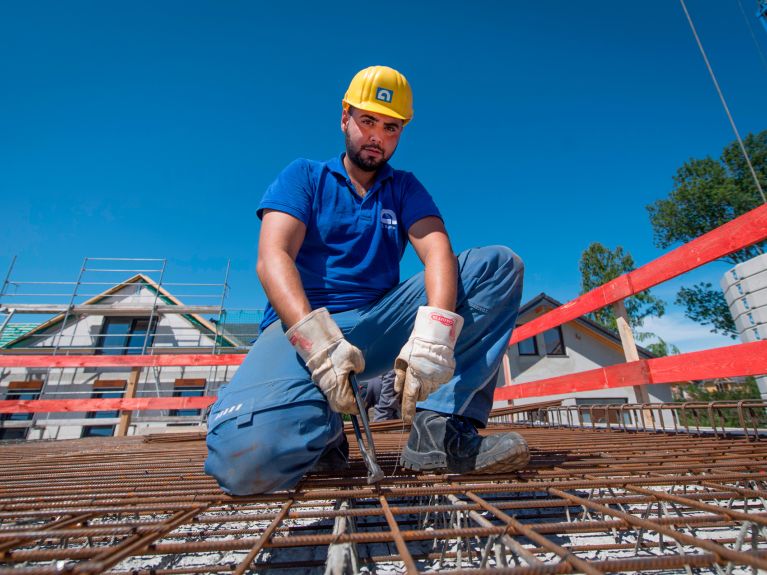“Important signal for craft businesses”
Whether at construction sites or in a bakeries, there is a lack of skilled workers in the craft trades. Does the planned immigration law help? Here is what the President of the Central Association of German Skilled Crafts has to say.

Mr Wollseifer, how many skilled workers are lacking in German craft businesses and in what areas is the demand especially high?
According to the statistics of the Federal Employment Agency, at the end of 2017 there were 150,000 unfilled positions in the craft sector. Probably, however, the number is much higher, more like 250,000, because not all companies report their unfilled positions to the employment office. Particularly affected are the construction professions, for example building construction and the areas of sanitation, heating and ventilation, and also food trades such as butchers and bakers.

What aspects of the skilled labour immigration bill are welcome from point of view of the Skilled Crafts Association?
The immigration of professionally qualified professionals is greatly facilitated, for example, by the elimination of the priority check [i.e., whether a suitable candidate from Germany or the EU is available for an open position; editor’s note] and the waivering of the restriction to bottleneck occupations.
In addition, the bilateral mediation arrangements proposed by the Skilled Crafts Association will play an important part in attracting carefully targeted skilled foreign workers. In order to be able to make personal contact with potential foreign workers, it’s important to facilitate the search for a traineeship or a job place for immigrants.
Are the requirements for foreign skilled workers appropriate?
The draft law balances labour market needs with legitimate domestic and asylum considerations. Our Association fears, however, that for professionally qualified immigrants both the proof of adequate financial means of livelihood and the required German language skills represent a considerable hurdle.
Interview: Christina Rath
Newsletter #UpdateGermany: You would like to receive regular information about Germany? Subscribe here to:
